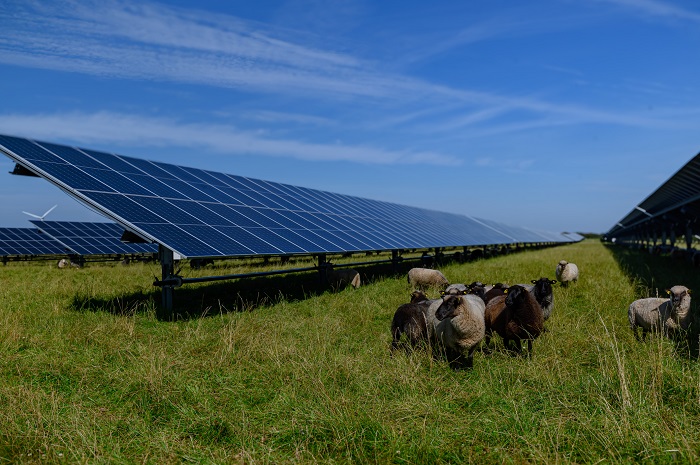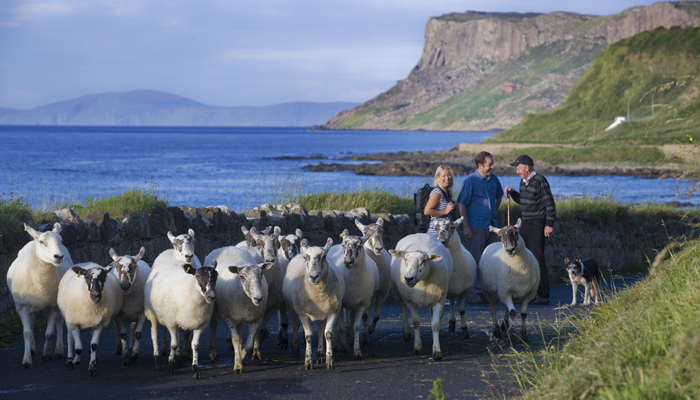24 April 2025
Diversifying Irish agriculture – navigating new paths to farm resilience
Thinking of diversifying your farm business? Energy and Rural Development Specialist at Teagasc, Barry Caslin looks at the pros and cons and explores a number of diversification options.
In an era of evolving markets and increasing environmental awareness, Irish farmers are strategically exploring diversification to strengthen their resilience and unlock new revenue streams. The agricultural landscape is no longer solely defined by traditional practices; innovative farmers are embracing new opportunities, from renewable energy to agri-tourism, to create sustainable and thriving businesses.
Diversification offers more than just an expanded product line. It provides a vital safety net, insulating farms against income volatility in specific sectors. However, diversification is not a magic bullet; it requires careful planning, realistic assessment and a commitment to staying true to one’s expertise.
Think of Cadbury. The company made its name in chocolate, but they have expanded into biscuits, cakes and even beverages. They are always innovating, but they are not suddenly going to start selling cars. They stick to what they know and do best.
The pitfalls of untamed diversification
It is important to acknowledge the risks. History reveals that a significant percentage of new ventures fail within their initial years. Diversification can stretch resources, divert management’s attention from the core business and lead to a failure to keep pace with essential advancements.
Diversification can be a way to spread risk, but it can also be an excuse for not making a success of existing operations. Before venturing into new territory, farmers must honestly evaluate their current operations:
- Can you realistically manage a new enterprise alongside your existing responsibilities?
- Do you have a clear understanding of the financial investment needed, and how will you secure funding?
- How will you effectively market and distribute your products or services?
- Are you aware of all the regulatory requirements and the most suitable business structure?
Answering these questions will determine whether diversification is a viable path forward. It may also reveal that focusing on optimising existing operations is the most prudent course of action.
Exploring diversification avenues
The possibilities for diversification in Irish agriculture are vast and varied:
Passive diversification
Renewable energy projects, such as wind turbines or solar panels, offer a relatively hands-off approach once established. Other areas could include forestry (commercial, carbon sequestration), and land rental/leasing (agricultural, commercial, cell tower for communications).

Core business expansion
Dairy farmers can explore producing and retailing their own milk (pasteurised, raw or flavoured), cheese, yogurt (natural, flavoured or Greek), or ice cream (traditional, artisan or dairy free using plant-based milk alternatives). It could include other dairy products such as butter, cream or Kefir production. The key challenge here often lies in establishing a robust route to market. It requires careful planning, investment and a commitment to quality and customer service.
New business ventures
Farm shops, while potentially rewarding, demand significant capital, market research and dedicated management. Other areas could include farm camps, team building activities, outdoor adventure activities, composting, on-farm storage facilities that all require thorough market research, a solid business plan and a realistic assessment of the resources and skills required.
Agri-tourism
Glamping, camping, motorhome sites, animal yoga, cheese and butter making workshops, bread baking demonstrations, wool spinning and weaving demonstrations, blacksmithing, harvest festivals, farm history tours, pollinator gardens, guided fishing or log cabins etc. can transform farms into sought-after holiday destinations.

Image source: Failte Ireland
Direct sales
Farm vending machines, meat boxes, pick your own operations mobile farm stand/truck, farm dinners/events, home delivery services etc. provide a convenient way to sell fresh produce directly to consumers, adding value and flexibility.
Experiential farming
Crop mazes, heritage skills workshops, animal encounters, farm safaris, nature trails etc. all offer a unique form of entertainment, attracting visitors and generating revenue.

Walkers enjoying the spring air and clear views on the Ballyhoura Mountains, with Caslteoliver in the background. Image source: Failte Ireland
Teagasc’s Farm Business Options Programme
To navigate the complexities of diversification, Teagasc offers the Farm Business Options Programme. This nationwide initiative equips farmers and farm family members with the skills and knowledge to explore new business opportunities and develop sustainable enterprises.
The programme organised in collaboration with Local Enterprise Offices (LEOs), provides guidance on business plan development, connects participants with mentors and introduces them to agencies that can provide practical support. Workshops feature successful farmers who have diversified their operations, along with Teagasc and industry specialists.
Upcoming programme details
The Farm Business Options Programme workshops will take place across the country from October to December. These workshops are free of charge, but registration is essential.
How to register
To express your interest in attending a Farm Business Options Programme workshop, click here.
You can also contact your local Teagasc office or visit the Options Programme webpage.
